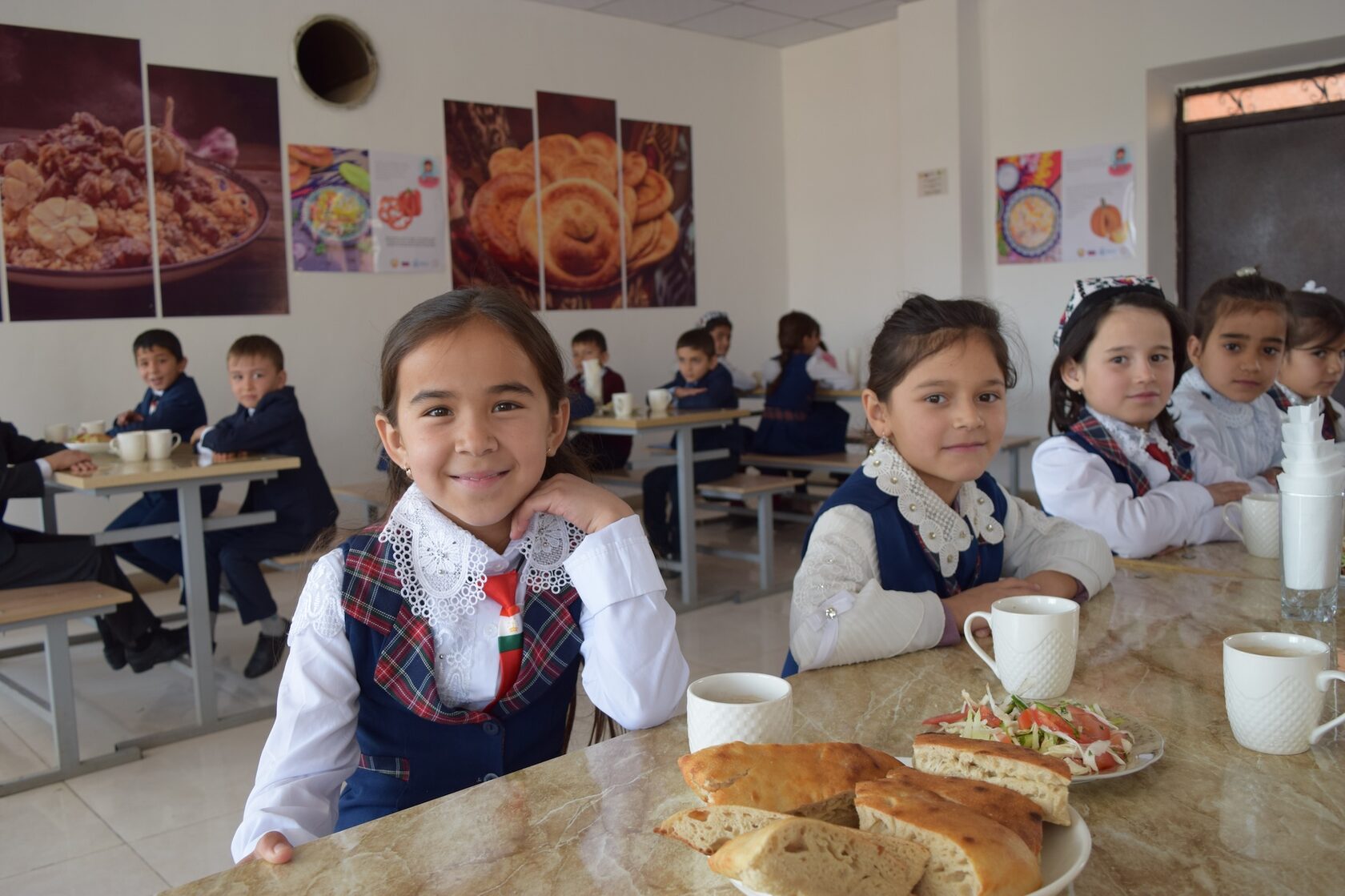In Tajikistan, the care for primary school children is reaching a whole new level. This year, around 50 schools will be equipped with modern kitchen appliances, and another 40 schools will start growing vegetables and keeping bees to supply children with fresh, nutritious foods. These initiatives are all part of a broader effort to make school meals tastier, healthier, and accessible to every child.
The news was announced by Deputy Minister of Education and Science Badridin Muzaffarzoda during a meeting with Adham Musallam, Country Director of the UN World Food Programme (WFP) in Tajikistan. The Deputy Minister noted that the National School Feeding Development Programme for 2022–2027 is already showing tangible results: more and more children are receiving hot, balanced meals. However, there are plans to go the extra mile.
Mr. Musallam confirmed that a new phase of the Programme, running from 2025 to 2028, is set to begin and will bring even greater changes. In addition to upgraded kitchens, schools will have greenhouses, beekeeping projects, and other initiatives that will help them generate income and provide students with fresh, locally sourced food.
Meanwhile, as part of ongoing support, 270 tons of flour were delivered to schools in early April, which was made possible with the assistance of Russia and the United Nations Development Programme (UNDP). As Vera Khutorskaya, Minister-Counselor of the Russian Embassy in Tajikistan, emphasized, delivering food supplies to rural schools has become a valued tradition.
The future of school feeding in Tajikistan is promising: it will be built on new opportunities and a deep commitment to ensure children's well-being. This means that children across the country will have a greater chance for a healthier life and a successful future.
Source: Sputnik Tajikistan
The news was announced by Deputy Minister of Education and Science Badridin Muzaffarzoda during a meeting with Adham Musallam, Country Director of the UN World Food Programme (WFP) in Tajikistan. The Deputy Minister noted that the National School Feeding Development Programme for 2022–2027 is already showing tangible results: more and more children are receiving hot, balanced meals. However, there are plans to go the extra mile.
Mr. Musallam confirmed that a new phase of the Programme, running from 2025 to 2028, is set to begin and will bring even greater changes. In addition to upgraded kitchens, schools will have greenhouses, beekeeping projects, and other initiatives that will help them generate income and provide students with fresh, locally sourced food.
Meanwhile, as part of ongoing support, 270 tons of flour were delivered to schools in early April, which was made possible with the assistance of Russia and the United Nations Development Programme (UNDP). As Vera Khutorskaya, Minister-Counselor of the Russian Embassy in Tajikistan, emphasized, delivering food supplies to rural schools has become a valued tradition.
The future of school feeding in Tajikistan is promising: it will be built on new opportunities and a deep commitment to ensure children's well-being. This means that children across the country will have a greater chance for a healthier life and a successful future.
Source: Sputnik Tajikistan
